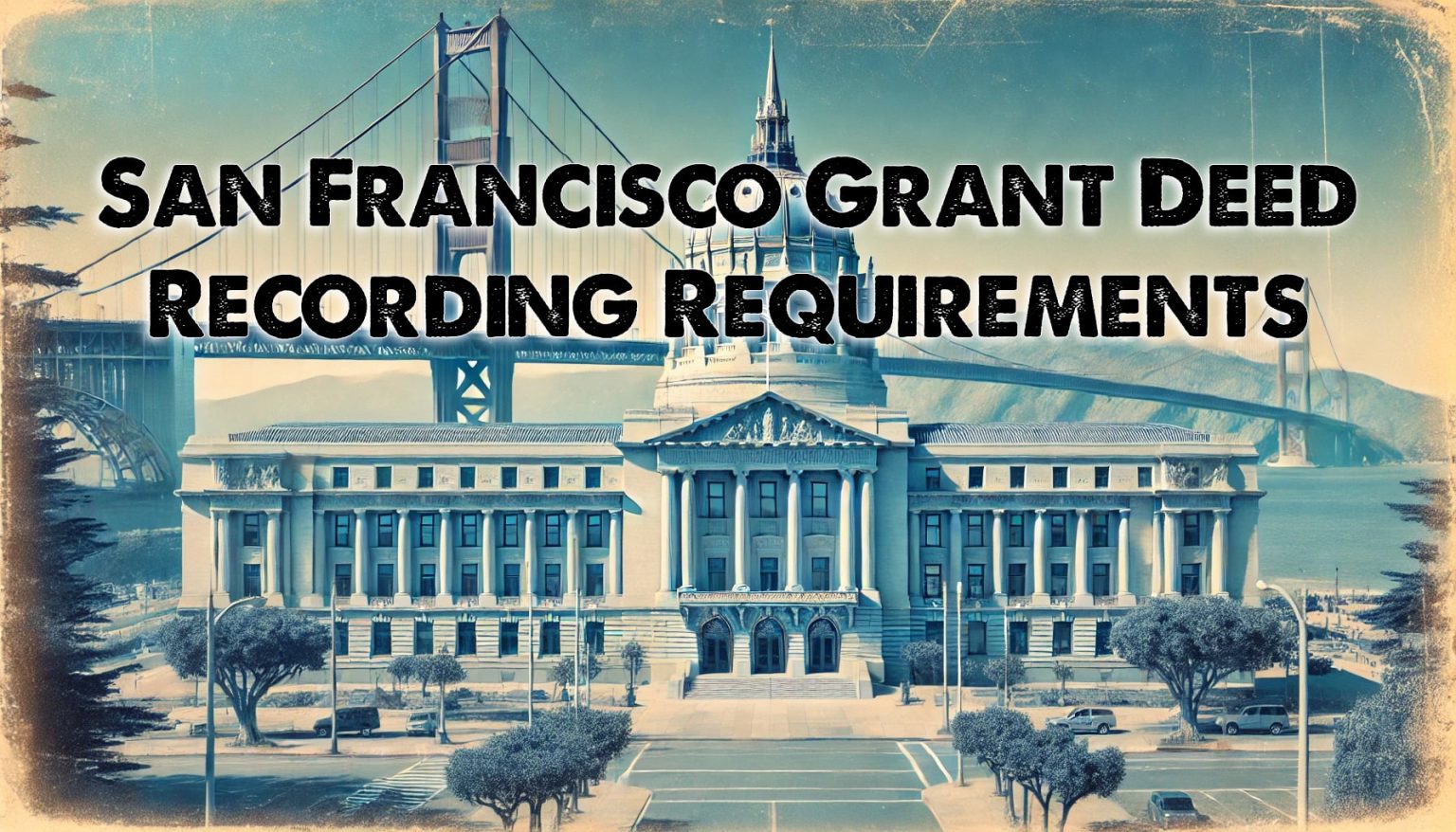When recording a grant deed in San Francisco, it’s essential to ensure your document meets the specific requirements outlined by the San Francisco Assessor-Recorder’s Office.
Missing crucial elements like the Assessor’s Parcel Number (APN) or the commonly-known situs can result in your document being rejected, delaying your real estate transaction. With the Office of the Assessor-Recorder responsible for recording over 200 types of documents, attention to detail is critical.
In this article, we will explain the necessary information your grant deed must include for successful recordation in San Francisco.
Why Your Grant Deed Won’t Be Recorded Without the Correct Information
The San Francisco Assessor-Recorder’s Office has strict guidelines for recording grant deeds and other real estate documents. A common reason for rejection is the absence of key information on the first page of the document, particularly the Assessor’s Parcel Number (APN) and the situs, which is the commonly-known street name and number of the property. According to San Francisco Business & Tax Regulations Code, Article 12-C, Section 1102.1, these elements must be present for the document to be recorded.
What is the situs?
The situs refers to the commonly known street address of the property. This information, along with the Assessor’s Parcel Number (APN), provides critical data that the Assessor-Recorder’s Office needs to process the document. If this information is missing or incorrect, your grant deed will not be recorded.
Assessor’s Parcel Number (APN) and Situs: The Key Elements for Successful Recordation
To ensure your grant deed is recorded smoothly, the first page of your document must include the following:
1. “Assessor’s Parcel Number (APN)” The APN is a unique identifier for real property in San Francisco, used by the county to track ownership and tax information. The APN must be listed on the face of the first page of your grant deed.
2. “Situs” The commonly known situs (street name and number) must be included along with the APN. These two pieces of information work together to ensure the document pertains to the correct property.
Failure to include either the APN or the situs can cause significant delays in your transaction, as the document will be returned unrecorded. It is recommended to double-check this information with your title company or legal advisor before submission.
Additional Document Requirements for Recording in San Francisco
In addition to the APN and situs, San Francisco grant deeds must meet other requirements for recordation:
3. “Document Format” All pages must be 8 ½” by 11″ in size. Any deviation from this standard incurs additional fees, and pages larger than 8 ½” by 14″ will not be accepted.
4. “Requesting Party Information” The name of the person requesting recordation and the mailing address where the document should be returned must appear in the left-hand 3 ½” of the top 2 ½” of the first page.
5. “Signature Requirements” Documents must contain original signatures or be certified copies of the original.
Final Reminder: Recording Requirements vs. Legal Requirements
While the Assessor-Recorder’s Office ensures that documents meet recording requirements, it is important to remember that these requirements differ from legal requirements. The examiners do not provide legal advice, and it is highly recommended that you consult an attorney or title company representative for assistance with your grant deed preparation.
Conclusion
The successful recordation of a grant deed in San Francisco hinges on meeting specific criteria, most notably the inclusion of the Assessor’s Parcel Number (APN) and the commonly-known situs on the first page of the document.
By ensuring these details are correct, you can avoid unnecessary delays and keep your real estate transaction on track. Always consult with legal professionals for guidance and ensure all document requirements are met before submission.






